Fleurs du Mal Magazine


Or see the index

Menschen
Als ich, mit der Welt zerfallen,
Schweigend ging umher,
Da fragten die lieben Menschen:
Was quälet dich so sehr?
Ich sagte ihnen die Wahrheit;
Sie haben sich fortgedrückt
Und hinter meinem Rücken
Erklärt, ich sei verrückt.
Ada Christen
(1839 – 1901)
Menschen
• fleursdumal.nl magazine
More in: Archive C-D, Archive C-D, Christen, Ada
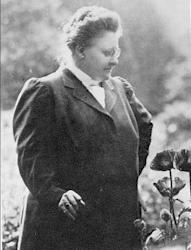
The Weather-Cock Points South
I put your leaves aside,
One by one:
The stiff, broad outer leaves;
The smaller ones,
Pleasant to touch, veined with purple;
The glazed inner leaves.
One by one
I parted you from your leaves,
Until you stood up like a white flower
Swaying slightly in the evening wind.
White flower,
Flower of wax, of jade, of unstreaked agate;
Flower with surfaces of ice,
With shadows faintly crimson.
Where in all the garden is there such a flower?
The stars crowd through the lilac leaves
To look at you.
The low moon brightens you with silver.
The bud is more than the calyx.
There is nothing to equal a white bud,
Of no colour, and of all,
Burnished by moonlight,
Thrust upon by a softly-winging wind.
Amy Lowell
(1874-1925)
The Weather-Cock Points South
• fleursdumal.nl magazine
More in: Archive K-L, Archive K-L, Lowell, Amy
Suicide is often framed as betrayal, even though we live in a world that betrays us.
 When this world tells us that death is better, what does it mean to have faith in life?
When this world tells us that death is better, what does it mean to have faith in life?
JUDAS & SUICIDE is a poetry collection navigating religion and suicidality.
It approaches these topics through the lens of Black family and community, sadness, medication, sexual violence, the prison industrial complex, media, and Bible verses.
JUDAS & SUICIDE explores how to be convinced to stay alive without feeling obligated to.
Maya Williams (ey/em, they/them, and she/her) is a religious Black multiracial nonbinary suicide survivor who is currently an Ashley Bryan Fellow and the seventh Poet Laureate of Portland, Maine.
Judas & Suicide
Poems
by Maya Williams
Publ. Date: 5/23/2023
Publisher: Game Over Books
ISBN: 979-8-9878871-0-3
Binding: PAPERBACK
Pages: 80
Price: $ 18.00
• fleursdumal.nl magazine
More in: #Editors Choice Archiv, - Book News, - Bookstores, Archive W-X, Archive W-X, Suicide

Lied des Todes
Alles Leben ist Lüge,
Wahr bin nur ich allein,
Finde nun, Herz, Dein Genüge,
Schlafe, schlafe nun ein.
Ich war Dein erster Begleiter
Und werde Dein letzter sein,
Die Menschen eilten weiter,
Ich liess dich nie allein.
Sie alle kränkten dich stets aufs neu,
Ich stand nur still beiseite,
Sie gingen alle, ich blieb treu,
Ergib Dich mir nun heute.
Lieb mich und meine sanfte Macht,
Du bist mir ja bestimmt.
Das Leben hat dich müd gemacht,
Schlaf ein, schlaf ein, mein Kind.
Ich und Deine Mutter lauschten
Deines Herzens erstem Schlag,
Blut und Blut zusammenrauschten,
Herz an Herz gebettet lag.
Sie war Anfang, ich bin Ende
Und dazwischen littest Du.
Gib Dich nun in meine Hände,
Finde, Seele, Deine Ruh.
Joseph Roth
(1894 – 1939)
Lied des Todes
• fleursdumal.nl magazine
More in: Archive Q-R, Archive Q-R, Joseph Roth
Hoe betoverend te kunnen spreken met alle dingen.
In haar tweede dichtbundel Anker Kruis Hart belicht Sofie Verdoodt de voortdurende metamorfose van mens, dier en ding. Erotiek, verlies en moederschap raken hierbij verknoopt.
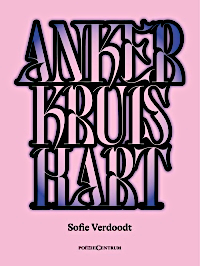 Net wanneer de tijd niets meer overlaat om te wissen, gooit Verdoodt haar anker uit. Van veraf of van heel dichtbij aanschouwen we de grote oversteek, de zielsverhuizing, of de gedaantewissel van een reeks personages, waaronder een lyrisch ‘ik’.
Net wanneer de tijd niets meer overlaat om te wissen, gooit Verdoodt haar anker uit. Van veraf of van heel dichtbij aanschouwen we de grote oversteek, de zielsverhuizing, of de gedaantewissel van een reeks personages, waaronder een lyrisch ‘ik’.
Deze gedichten zijn als intieme brieven of elegieën voor personages die uit de eigen as blijven verrijzen. Sofie Verdoodt (1983) debuteerde in 2014 bij PoëzieCentrum met Doodwater.
Haar werk verscheen in tijdschriften en bloemlezingen als Poëziekrant, De Brakke Hond, Nieuw Groot Verzenboek, De Volksverheffing en De Grote Inkijk. Ze werkte mee aan muzikale projecten van BARST en Amenra. Als doctor in de kunstwetenschappen doceert ze en schrijft ze essays over film en kunst.
Anker Kruis Hart
Gedichten
Auteur: Sofie Verdoodt
Uitgeverij: Poeziecentrum VZW
Taal: Nederlands
ISBN: 9789056553579
Uitvoering: Paperback
Aantal pagina’s: 42
2023
Afmetingen: 200x150x5 mm.
20,00 euro
• fleursdumal.nl magazine
More in: #Editors Choice Archiv, - Book News, - Bookstores, Archive U-V, Archive U-V
Available for the first time in paperback, How To Be Invisible collects the seminal lyrics of Kate Bush, selected by the artist and brought together in a beautiful edition with cover artwork from Jim Kay.
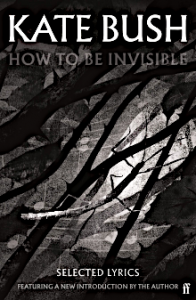 Selected and arranged by the author, How To Be Invisible presents the lyrics of Kate Bush in a beautiful new paperback edition featuring a new cover by illustrator Jim Kay.
Selected and arranged by the author, How To Be Invisible presents the lyrics of Kate Bush in a beautiful new paperback edition featuring a new cover by illustrator Jim Kay.
‘The greatest singer-songwriter of the past 40 years, whose work is complex, ethereal and filled with so many secrets that one can listen to the albums for decades and still discover new delights every time[…] there’s not a spare word anywhere in Bush’s work. Everything means something.’ – Irish Times
Kate Bush is an English singer, songwriter, musician, dancer and record producer. Rising to prominence with her debut single ‘Wuthering Heights’, she has released ten studio albums, all of which have charted in the UK Top Ten. She has been nominated for thirteen Brit Awards, winning for Best British Female Artist in 1987, and has been nominated for three Grammy Awards. In 2002 she received an Ivor Novello Award for Outstanding Contribution to British Music, was appointed a CBE in the 2013 New Years Honours, and was twice-nominated for induction into the Rock and Roll Hall of Fame. How to Be Invisible, a collection of Bush’s lyrics, was published by Faber & Faber in 2018 and was a Rough Trade and Belfast Telegraph Book of the Year.
How To Be Invisible
Kate Bush (author)
New introduction by Kate Bush
Language: English
Paperback
224 Pages
Published: 06/04/2023
Publisher: Faber & Faber
ISBN-13: 9780571383023
ISBN-10: 0571383025
Number of pages: 224
$19.95
• fleursdumal.nl magazine
More in: #Editors Choice Archiv, - Book News, - Bookstores, Archive A-B, Archive A-B, AUDIO, CINEMA, RADIO & TV, DANCE & PERFORMANCE, Kate Bush
Holland Festival’s associate artist ANOHNI presents a mixed media exhibit: SHE WHO SAW BEAUTIFUL THINGS.
The installation includes a series of portraits honoring ANOHNI’s former collaborator Dr. Julia Yasuda, taken by Julia’s late wife Erika Yasuda in Tokyo in the early 1980s, and exhibited here for the first time.

Erika Yasuda’s portrets: Within the collection of the Huis Willet-Holthuysen in the centre of Amsterdam, ANOHNI layers photos, silkscreened fabrics, sculpture, video, sound and paintings from her own artistic practices within a selection of Erika Yasuda’s extraordinary portraits. The works reflect an insular and delicately composed vision of enlightened femininity and luxuriant androgyny, persevering in memory despite historical and ongoing existential threats.
ANOHNI: ‘I like the concept of ‘animism’ – that everything is alive, in an ongoing a process of transformation -and that all materiality is imbued with a certain presence, even a sense of memory that we might not entirely understand. I work with veils as a way to suggest different layers of presense. Sometimes I imagine a cacophony of moments within a timeline in a certain space, as if they were all able to express their vitality simultaneously.’
About ANOHNI: Born in England, ANOHNI lives and works in America as a musician, visual artist and theater director. In 1995 she founded her performance group The Johnsons, with which she performed with symphony orchestras in opera houses around the world, including Sydney Opera House, the Royal Opera House in London, Teatro Real in Madrid and Carnegie Hall in New York.
ANOHNI has presented exhibitions of her visual work at the Nikolaj Kunsthal, Kunsthalle Bielefeld, The Hammer Museum, The Kitchen and Sikkema Jenkins Gallery in New York. She co-facilitated the art project FUTURE FEMINISM presented at The Hole, New York in 2014 and was part of ANOHNI’s artistic residency in Aarhus, European Capital of Culture in 2017.
The Willet-Holthuysen House: The imposing Willet-Holthuysen House is situated in the center of Amsterdam. The house on the Herengracht contains many period rooms. Its beautiful salons are in the style of Louis XIV, and the garden is symmetrically designed as a French formal garden.
Address: Herengracht 605, 1017 CE Amsterdam.
Open daily from 10 a.m. 5 p.m.
• https://www.amsterdammuseum.nl/
june 4 until october 29 – 2023
Willet-Holthuysen House – Amsterdam
• fleursdumal.nl magazine
More in: #Editors Choice Archiv, anohni = antony, Archive A-B, Archive A-B, Art & Literature News, AUDIO, CINEMA, RADIO & TV, Holland Festival, Photography
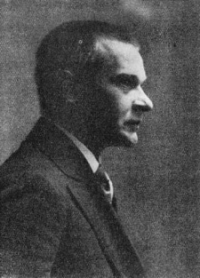
Grodek
Am Abend tönen die herbstlichen Wälder
von tödlichen Waffen, die goldnen Ebenen
und blauen Seen, darüber die Sonne
düstrer hinrollt; umfängt die Nacht
sterbende Krieger, die wilde Klage
ihrer zerbrochenen Münder.
Doch stille sammelt im Weidengrund
rotes Gewölk, darin ein zürnender Gott wohnt
das vergoßne Blut sich, mondne Kühle;
alle Straßen münden in schwarze Verwesung.
Unter goldenem Gezweig der Nacht und Sternen
es schwankt der Schwester Schatten durch den schweigenden Hain,
zu grüßen die Geister der Helden, die blutenden Häupter;
und leise tönen im Rohr die dunkeln Flöten des Herbstes.
O stolzere Trauer! ihr ehernen Altäre
die heiße Flamme des Geistes nährt heute ein gewaltiger Schmerz,
die ungebornen Enkel.
Georg Trakl
(1887 – 1914)
Grodek
• fleursdumal.nl magazine
More in: Archive S-T, Archive S-T, Trakl, Georg, Trakl, Georg
Les treize histoires et sept poèmes qui composent ce livre se répondent et se complètent:
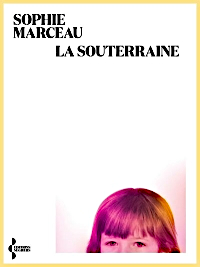
Au fil des récits, des fables, des fragments de vie, des poésies, il s’agit toujours de dévoiler un mystère, un secret, la part souterraine…
Les mots s’insinuent comme il faut pour toucher ce qu’il y a à toucher, et dire ce qu’il y a à en dire. Avec finesse et intensité.
Et c’est un plaisir de plonger dans ces textes – débordants d’imagination, de fantaisie, basculant souvent de l’observation la plus juste à une imprévisible drôlerie.
Sophie Marceau: actrice, réalisatrice et scénariste, elle publie avec La Souterraine son deuxième livre après Menteuse (Stock, 1996).
Sophie Marceau (Auteur)
La Souterraine
Cinéma, littérature et poésie
Editeur Seghers
Paru le 4 mai 2023
Format: broché
EAN 9782232146831
ISBN 2232146839
SKU 5292114
Nombre de pages 160
Format 14cm x 19cm
€ 17,00
• fleursdumal.nl magazine
More in: #Editors Choice Archiv, - Book News, - Bookstores, Archive M-N, Archive M-N, AUDIO, CINEMA, RADIO & TV, THEATRE
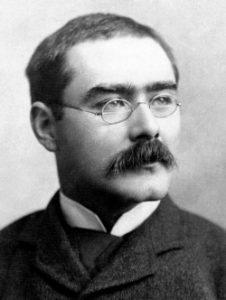
If—
If you can keep your head when all about you
Are losing theirs and blaming it on you,
If you can trust yourself when all men doubt you,
But make allowance for their doubting too;
If you can wait and not be tired by waiting,
Or being lied about, don’t deal in lies,
Or being hated, don’t give way to hating,
And yet don’t look too good, nor talk too wise:
If you can dream—and not make dreams your master;
If you can think—and not make thoughts your aim;
If you can meet with Triumph and Disaster
And treat those two impostors just the same;
If you can bear to hear the truth you’ve spoken
Twisted by knaves to make a trap for fools,
Or watch the things you gave your life to, broken,
And stoop and build ’em up with worn-out tools:
If you can make one heap of all your winnings
And risk it on one turn of pitch-and-toss,
And lose, and start again at your beginnings
And never breathe a word about your loss;
If you can force your heart and nerve and sinew
To serve your turn long after they are gone,
And so hold on when there is nothing in you
Except the Will which says to them: ‘Hold on!’
If you can talk with crowds and keep your virtue,
Or walk with Kings—nor lose the common touch,
If neither foes nor loving friends can hurt you,
If all men count with you, but none too much;
If you can fill the unforgiving minute
With sixty seconds’ worth of distance run,
Yours is the Earth and everything that’s in it,
And—which is more—you’ll be a Man, my son!
Rudyard Kipling
(1865 – 1936)
If
• fleursdumal.nl magazine
More in: Archive K-L, Archive K-L, Kipling, Rudyard
The only book of poetry to date devoted to the Rwanda genocide and published in this country, this is a work of nonfictional poetry, a cousin in genre to the nonfictional novel.
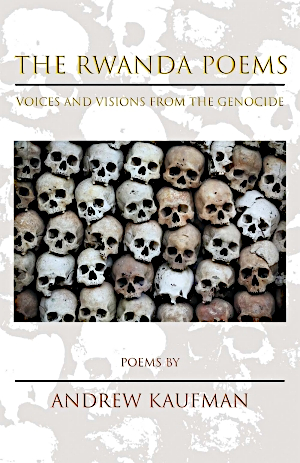 It is based not only on the poet’s observations and encounters during months spent in post-genocide Rwanda, but on his numerous extensive interviews with survivors, all of whom lost most if not all of their families, and with convicted genocide perpetrators, conducted in prisons.
It is based not only on the poet’s observations and encounters during months spent in post-genocide Rwanda, but on his numerous extensive interviews with survivors, all of whom lost most if not all of their families, and with convicted genocide perpetrators, conducted in prisons.
The result is a startling book of poems that by turns is unthinkably horrifying, heartbreaking, and enraging, yet which at times breaks unexpectedly into stunning revelatory moments of grace.
As a poetry of witness this book reveals what it is like to carry on with daily life in a society where nearly every adult male is either a genocide survivor or perpetrator, almost every woman either a survivor or the wife of a perpetrator, and where nearly every child at the time of the genocide witnessed multiple killings, often of immediate family members.
Ranging from free verse to stanzaic forms, this book by an NEA-award-winning poet uses tools and methods of poetry to distil each of its many varied voices to its essence, allowing those who are heard in these poems to speak for themselves, often in juxtapositions that lend the book the structure and tension of a drama. Considered more broadly, The Rwanda Poems is a book about the extremities of evil that the human psyche is capable of enduring and inflicting, and the resulting psychic costs to survivors and perpetrators.
Andrew Kaufman‘s books include Earth’s Ends, winner of the Pearl Poetry Prize, The Cinnamon Bay Sonnets, winner of the Center for Book Arts book award, Both Sides of the Niger (Spuyten Duyvil Press), and the COMPLETE CINNAMON BAY SONNETS (Rain Mountain Press). The time he spent in Rwanda was made possible in part by an NEA grant. He has taught literature and writing at a number of colleges and universities, and resides in New York City.
The Rwanda Poems
Voices and Visions from the Genocide
by Andrew Kaufman
Language: English
Publisher: NYQ Books
10 Mar. 2023
Product Number:9781630450816
ISBN-10: 1630450812
ISBN-13: 978-1630450816
Pages:110
Paperback
£12.13
• fleursdumal.nl magazine
More in: #Editors Choice Archiv, - Book News, - Bookstores, Archive K-L, Archive K-L

An Image from a Past Life
He. Never until this night have I been stirred.
The elaborate star-light throws a reflection
On the dark stream,
Till all the eddies gleam;
And thereupon there comes that scream
From terrified, invisible beast or bird:
Image of poignant recollection.
She. An image of my heart that is smitten through
Out of all likelihood, or reason,
And when at last,
Youth’s bitterness being past,
I had thought that all my days were cast
Amid most lovely places; smitten as though
It had not learned its lesson.
He. Why have you laid your hands upon my eyes?
What can have suddenly alarmed you
Whereon ’twere best
My eyes should never rest?
What is there but the slowly fading west,
The river imaging the flashing skies,
All that to this moment charmed you?
She. A sweetheart from another life floats there
As though she had been forced to linger
From vague distress
Or arrogant loveliness,
Merely to loosen out a tress
Among the starry eddies of her hair
Upon the paleness of a finger.
He. But why should you grow suddenly afraid
And start — I at your shoulder —
Imagining
That any night could bring
An image up, or anything
Even to eyes that beauty had driven mad,
But images to make me fonder?
She. Now she has thrown her arms above her head;
Whether she threw them up to flout me,
Or but to find,
Now that no fingers bind,
That her hair streams upon the wind,
I do not know, that know I am afraid
Of the hovering thing night brought me.
William Butler Yeats
(1865-1939)
An Image from a Past Life
• fleursdumal.nl magazine
More in: Archive Y-Z, Archive Y-Z, Yeats, William Butler
Thank you for reading Fleurs du Mal - magazine for art & literature